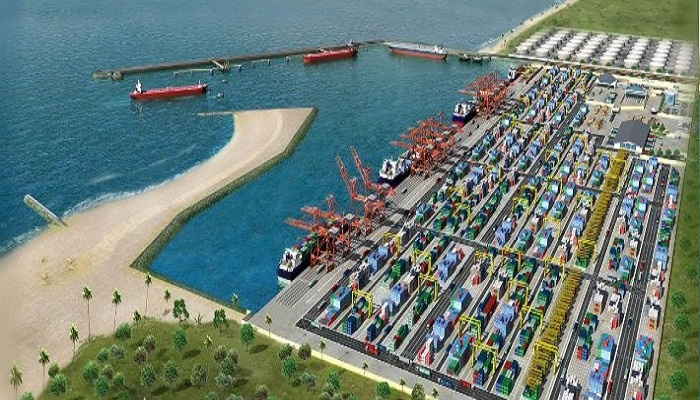The completion of phase one of the Lekki Deep Sea Port (LDSP) is currently the one landmark project that solidified this bilateral partnership between China and Nigeria. The BRI (Belt and Road Initiative) is a visionary proposal to create a Silk Road economic belt and a 21st-century maritime Silk Road. President Xi Jinping drove the proposal with his vision of fostering interconnectivity and shared prosperity among nations.
The China Harbour Engineering Company (CHEC) constructed the completion of phase one of the Lekki Deep Sea Port. A subsidiary of the China Communications and Construction Company Group Limited (CCCC) headquartered in Beijing. This grand initiative found a perfect synergy with Nigeria’s agenda to address its longstanding infrastructure deficit. The BRI has seamlessly aligned with Nigeria’s aspirations, paving the way for massive infrastructure development.
Situated in Lagos, Nigeria’s economic epicenter, the LDSP has been a game-changer. Experts assert that it has transformed Nigeria’s fortunes. It has also positioned it to become West Africa’s trading and maritime hub. TDSP has enhanced its potential to play a leading role in the African Continental Free Trade Agreement (AfCFTA).
Funding For The Construction Of Phase One Of The Lekki Deep Sea Port.
Gong Xin, Assistant General Manager of the Industrial Investment Department at CHEC, revealed that the China Development Bank provided the bulk of the funding, with the project’s cost totaling approximately $1.04 billion. CHEC held 52% equity, while Tolaram, a Singaporean firm, the Nigerian Ports Authority, and the Lagos state government shared the remaining equity stakes. The completion of phase 1 of the LDSP has excited many Nigerians. In addition, it would be generating thousands of jobs and significant revenue.
Also read Nigerian Naval Dockyard Paves The Way For The Construction Of LPG Coastal Transportation Barges.
The construction of phase one of the Lekki Deep Sea Port currently covers 50 out of 90 hectares. It boasts a phase 1 depth of 16.5 meters, with a projected 19-meter depth for phase 2. In fact, this would make it the deepest port in West Africa. As it transitions into a transshipment hub, it promises to reduce cargo transportation time. A feat achieved through extensive cooperation between Nigeria and China, facilitated by concessional Chinese loans.
Furthermore, CHEC’s extensive track record in Nigeria includes over 20 projects, such as the recently completed Keffi-Abuja-Akwanga-Lafia highway. However, the LDSP remains the company’s most substantial undertaking in Nigeria over the past decade.
As China continues to deepen its investment in Nigeria, the nation stands to benefit from increased empowerment through vocational skills development, technical competence enhancement for its indigenous population, and technology transfer—a testament to the enduring legacy of the Belt and Road Initiative’s transformative impact on Nigeria’s infrastructure landscape.

Leave a Reply